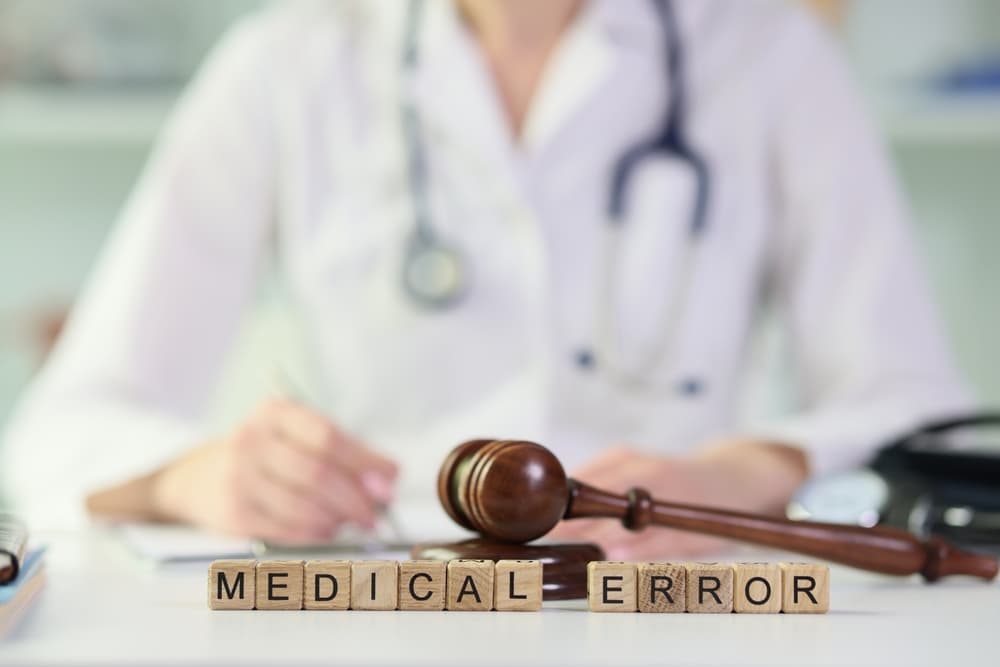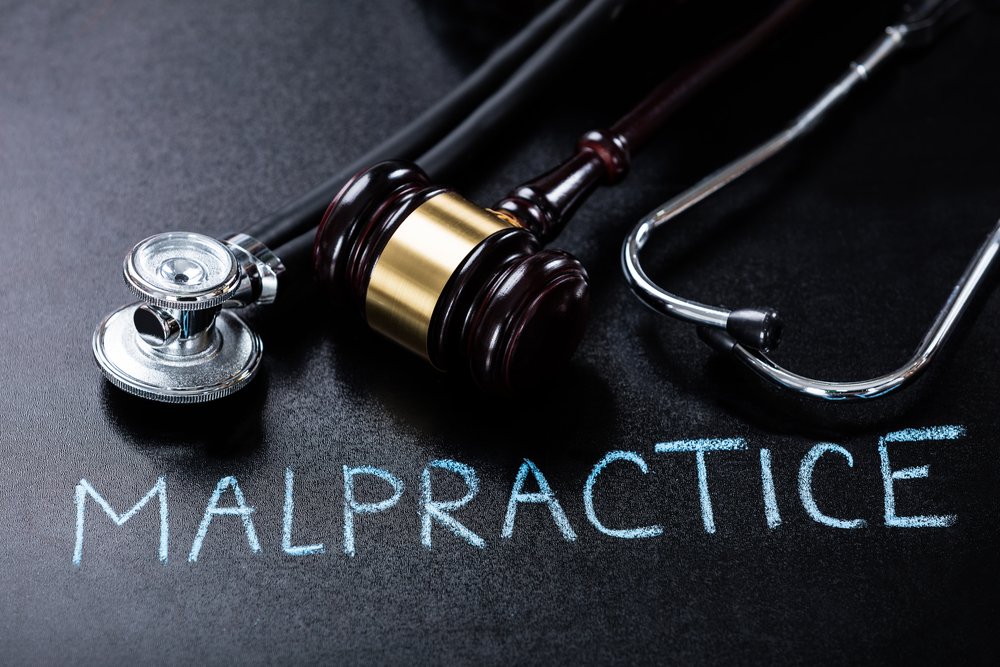Medical malpractice cases can be some of the most difficult personal injury cases to prove. The stakes are high, and injured parties are up against large and powerful insurance companies and often large medical companies. They must carefully prove every required element to succeed in their claim and receive the compensation they deserve for their damages.
One of the most essential steps injured parties can take in proving a medical malpractice case is hiring a knowledgeable and experienced medical malpractice attorney in Myrtle Beach. Medical errors that cause serious injuries are unacceptable, and medical professionals should be accountable for the harm they cause. This helps victims move on with support and hopefully prevents future malpractice.
Do You Have a Medical Malpractice Claim?

Medical malpractice can happen to anyone when they least expect it. Doctors and other healthcare providers must follow a specific standard of care depending on their job, education, licenses, and certifications. When they don't provide care that adheres to this standard of care, innocent patients can suffer injuries, some of them fatal. In fact, medical errors are the third-leading cause of death in the United States.
To succeed with a medical malpractice claim, the injured party or their medical malpractice attorney must establish the following:
A Provider-Patient Relationship Existed
The injured party and the negligent medical professional had a provider-patient relationship. Receiving poor medical advice from a doctor the injured party met at a social function doesn't create a doctor/patient relationship. It doesn't matter how much they relied on their advice or the severity of the damages suffered because of it. An agreement with the practitioner to provide medical care must exist. However, this element is rarely challenged in court. A provider-patient relationship gets established when a doctor agrees to treat someone in a medical setting.
The Medical Practitioner was Negligent
To prove the practitioner's care was negligent, the injured party must establish that it was substandard care compared to other practitioners in the same field of practice performing the same kind of care within the same community. Therefore, they typically need expert witnesses who can testify that the professional care they received was below the generally accepted standard of care.
The medical expert will apply the standard of care to the situation and show with their testimony that the medical care received was below the current acceptable standard in the medical community. The medical expert will testify, discussing the medical care and what the patient should have received instead.
The Negligent Care Caused Harm
The negligent, sub-standard care received caused the patient to suffer harm. It's not enough just to prove that the medical provider was negligent in their actions. The injured party must also prove that the medical professional's negligence caused their injuries. They must show that their suffering isn't due to a pre-existing condition or some other previous medical issue but that it's because of the medical provider's negligence.
Damages Arose from Their Negligence
The patient suffered damages because of the medical professional's negligence. They must provide quantifiable evidence of the damages they sustained. They will need to provide proof of their:
- Medical expenses
- Lost income and future earnings
- Rehabilitation expenses
- Pain and suffering
- Any other expense incurred due to the negligence
Not every medical mistake is medical malpractice. For example, suppose a nursing student injected a substance meant for intravenous administration into a patient's urinary catheter. The patient didn't suffer any injury as a result, and there were no damages. Medical malpractice didn't occur in that case, and the patient would not have a claim.
However, if you think your injuries may be the result of medical malpractice, it's in your best interest to consult with a skilled medical malpractice attorney as soon as possible. The attorney will review all the details of your situation and injuries to determine if you have a case for medical malpractice. You don't ever want to decide independently that you don't have a case, as you might be walking away from the monetary compensation you deserve for your injuries.
Res Ipsa Loquitur
Res Ipsa Loquitur is a Latin and legal term meaning "the thing speaks for itself." In the context of medical malpractice, it means that the result would not have occurred unless there was negligence. The elements of establishing the res ipsa loquitur framework include:
- No evidence of the actual cause of injury is available.
- The injury could not have occurred without negligence.
- The person injured isn't responsible for their own injury.
- The at-fault party had exclusive control of the instrumentality that caused the injury.
- The injury could not have resulted from anything other than the instruments over which the at-fault party had control.
A prime example of res ipsa loquitur is when a surgeon leaves a sponge or instrument inside a patient post-surgery. While there's no actual evidence of how the foreign body was left inside the patient, it would not have been left there unless someone was negligent. The unconscious patient could not have been liable for this negligence, and the surgeon and their staff had exclusive control over the surgical instruments left inside the patient.
Examples of Medical Malpractice
There are many different forms of malpractice, and no area of medicine is immune from such an event. Some examples of medical malpractice include:
- Misdiagnosis or failure to diagnose
- Misreading or ignoring laboratory results
- Improper medication or dosage
- Unnecessary surgery
- Surgical errors or wrong-site surgery
- Inadequate aftercare or follow-up
- Premature discharge
- Discounting or not taking a complete patient history
- Failure to refer to a specialist when appropriate
- Failure to order appropriate testing
- Failure to recognize signs or symptoms of a condition or illness
- Failure to administer anesthesia properly
- Failure to exercise care during labor and delivery
However, there are many other types as well. If you think you or someone you love may have been the victim of a medical error or medical malpractice, never wait to contact a medical malpractice lawyer about your case.
What Doesn't Constitute Medical Malpractice?
It's quite easy for people to attribute every negative medical outcome to medical malpractice. However, every adverse outcome doesn't necessarily constitute medical malpractice. Complications like infection, bleeding, and pain after a procedure or treatment might not be grounds for a case, especially if these risks are in the consent form the patient signed. Since the medical institution or professional warned about the risks associated with the medicine, procedure, or treatment, they can't be held liable for it. This is one reason a qualified lawyer in your area should review a potential medical malpractice case.
What Should You Do if You Think You Suffered Injuries Due to Medical Malpractice?
If you think you are the victim of medical malpractice, what you do next can impact the success of your case and your health. Here are the first steps you should take:
- See a different medical provider: Getting appropriate medical care from a different doctor is essential for your health and well-being. It can also ensure that any conditions caused or made worse by your original doctor get documented in your medical records.
- Get your medical records: Detailed medical documentation is critical in malpractice cases. It shows what your original doctor did or didn't do that caused your injury. It's important to note that you have a right to your medical records. You can submit a written request to the health care facility or reach out to a knowledgeable medical malpractice lawyer who can help.
- Call a medical malpractice attorney: A skilled lawyer can advise and support you through each step of the legal process. Their representation can also increase your chances of resolving your claim successfully.
Are Hospitals or Medical Facilities Automatically Liable for the Actions of Their Medical Professionals?
Hospitals and other medical facilities aren't automatically liable for every physician who commits malpractice while working in their facility. However, they are liable for the malpractice of a medical professional who works directly for them.
In a medical malpractice claim, the hospital will typically be liable if the individual responsible is a doctor, nurse, or another employee who worked directly for the hospital. However, they are only liable if the medical professional acted within the scope of their employment when the malpractice occurred.

Most states have laws that make employers responsible for the acts of their employees. This also applies to hospital medical employees who are doctors. However, it can be different if a physician has their own private practice and draws their income from that practice, not directly from the medical facility or hospital. "Hospital privileges," which are crucial to any doctor's practice, meaning the hospital doesn't technically employ them. Instead, they are permitted to treat patients on the hospital premises.
For a physician to be permitted "hospital privileges," hospital administrators must evaluate and approve them. When a private practice doctor with hospital privileges injures a patient through medical malpractice, and the malpractice is partly the hospital's fault, both the doctor and the hospital are liable for the resulting injuries. On the other hand, if a private practice physician commits malpractice and the hospital doesn't share fault, the hospital will not be liable.
Factors Contributing to Medical Malpractice
Medical malpractice has a range of causes, often intertwining multiple elements within a single case. A deep understanding of these contributing factors is crucial for the success of your claim. The following conditions can give rise to medical errors:
- Lack of Experience: Inexperienced medical professionals may lack the seasoned judgment required for complex medical situations, potentially leading to severe errors.
- Poor Communication: Inadequate communication between healthcare professionals within the same or different practices or departments, as well as a lack of effective communication with patients, can result in misunderstandings and oversights.
- Documentation Issues: Inaccurate or incomplete documentation can hinder the continuity of care and contribute to medical errors.
- Ineffective Systems: Insufficiently organized or outdated systems within medical offices or other settings may impede smooth operations and increase the likelihood of mistakes.
- Fatigue or Drowsiness: Healthcare providers who are fatigued or drowsy may experience compromised decision-making and diminished attention to detail.
- Alcohol or Drugs: Substance abuse issues among medical professionals can significantly impact their ability to provide safe and effective care.
- Time Constraints: Rushed situations due to time constraints can lead to oversights and hurried decision-making, increasing the risk of errors of medical malpractice for even the most careful medical provider.
- Heavy Patient Loads: Healthcare professionals managing excessive patient loads may find it challenging to provide individualized and thorough care to each patient.
- Provider Medical Problems: Health issues affecting medical providers can compromise their ability to deliver optimal care.
Understanding these factors is essential in navigating medical malpractice cases. Legal professionals specializing in medical malpractice can leverage this insight to build compelling cases on behalf of those who have suffered due to substandard medical care.
Why Medical Malpractice Cases are Difficult to Prove
Proving medical malpractice requires careful case construction, establishing a clear link between a physician or other healthcare provider's actions and the claimant's injuries. Unfortunately, there are often vague or inadequate medical records, necessitating comprehensive investigative efforts by legal teams.
A medical malpractice lawyer must research complex details to highlight a doctor's negligence. Collaborating with independent medical experts within the same field becomes crucial to demonstrate the unreasonableness of the medical provider's decisions.
Complicating matters further, juries frequently tend to favor medical providers. Whether influenced by recent lobbying efforts or personal inclinations towards healthcare professionals, jurors often lean towards supporting medical providers, resulting in unjust outcomes for the injured party, even before a case goes to trial. This predisposition also translates into diminished settlement offers for claimants.
Do You have Injuries Due to Medical Errors? Contact a Medical Malpractice Attorney Today

If you suspect substandard care from a medical provider resulted in your injuries, you need a legal team that will investigate thoroughly, collaborate with experts, and build a compelling case for compensation. Your rights deserve protection, and a personal injury lawyer will support you in evaluating damages and substantiating your claim. Contact a seasoned medical malpractice lawyer today for assistance.








